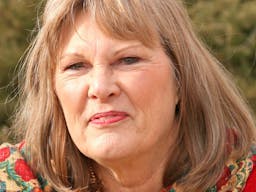Evolving Values: An Introduction
May 28, 2019
First story
We are in a situation where those who are paying attention are terrified and those who are not are resistant to change and even in denial about what the future holds. As humans it is very hard to see something that is not within your experience. That is why they say, “You can only teach what people already know.” That does not mean that what cannot be seen is not real, only that the framework for seeing and understanding the new and extraordinary has not yet been built.
When a young child is found wandering in the street, we yank it out of the street, we don’t engage on a program to teach it about cars and the effect of an impact. You can’t do this with adults, especially adults who think: they already know what they need to know; that they are right; that they are too embarrassed to admit that they don’t know. Add to that the timetable for change that the planet has versus the timetable it takes to educate learning phobic adults, and you have some understanding of the issues we face.
I’m part of the ‘yes we can’ crowd and I’ve spent years learning the subtleties of natural systems, so I have some grasp on the crisis we are facing, enough to be very daunted by the task at hand. I vacillate between committed enthusiasm and dejected despair. The task of rebalancing the planets natural systems so that we can return to the regular and comfortable environment we have lived in for the past 65,000 years, appears to be impossible now. It still appears that we may have the ability to slow down the shift and re-balance those systems at a slightly higher temperature range than we have experienced in the past. This is a hope and desire, I’m not sure exactly how real it is, but assuming that we can do that, the implications for the rest of the life on this planet is not at all clear.
Most life forms (us included) live within a fairly narrow temperature range. We are already seeing the migration of birds and animals and in a few cases plants toward the cooler regions of the globe. There are now robins in the arctic. The Eskimos do not have a name for the bird. We may be looking at a decimation of life at the equator as life pushes toward the polar-regions. The impacts on farming and our ability to produce enough food are at particular risk. What to do?
As Dylan Thomas said, I do not expect to ‘go gently into that good night’ but to rage, rage on. It is to that end that I write this book.
Systems thinking is the ability to see patterns, the dynamics formed by the interaction of wholes with each other. We are trained to see only parts and pieces of things. We see ourselves as separate and distinct objects with little or no connection to anything else. Yet we claim to be ‘all one’ and we claim to be a part of a species (humanity) that appear to have some similarities between all of the various objects we call human. We float in and out of wholes and parts when we think about people, or the environment, but for the most part it is pieces we pay attention to. This is very misleading. Because we do not see connections, dynamics or patterns, we are often surprised by our experiences. There is no place where that is truer than in the realm of ethics and values.
What I see most needed at this time in our existence is a love of Life. We are so caught up in fear, or in trying to ‘get it right’ or in ‘success’ that we have forgotten the why. Why are we here? Why do we even care about anything? It seems to me that everything is screaming for love. Everything is seeking love, but we are looking in all the wrong places.
When I look at how we have managed to understand ethics and morality, most of our approaches have been anchored in fear. Fear of others, fear of doing the wrong thing, fear of punishment, fear of appearing silly or unimportant or…. You cannot be in fear and still love Life. In fear you rationalize behavior under the pretext of becoming ‘safe.’ Love is letting go of fear. Christ very famously said, “You can’t serve two masters” and that is true. We cannot serve the ‘master’ of fear and still serve the ‘master’ of love. The only ethic that serves love of Life is the same ethic that nature uses to develop more and more complex life. It is an ethic that makes more important the relationships between life forms, than the life of the individual life forms themselves. The health of the whole is more important than any small part or piece. It is through the health of the whole that the pieces and parts find their health and well-being.




